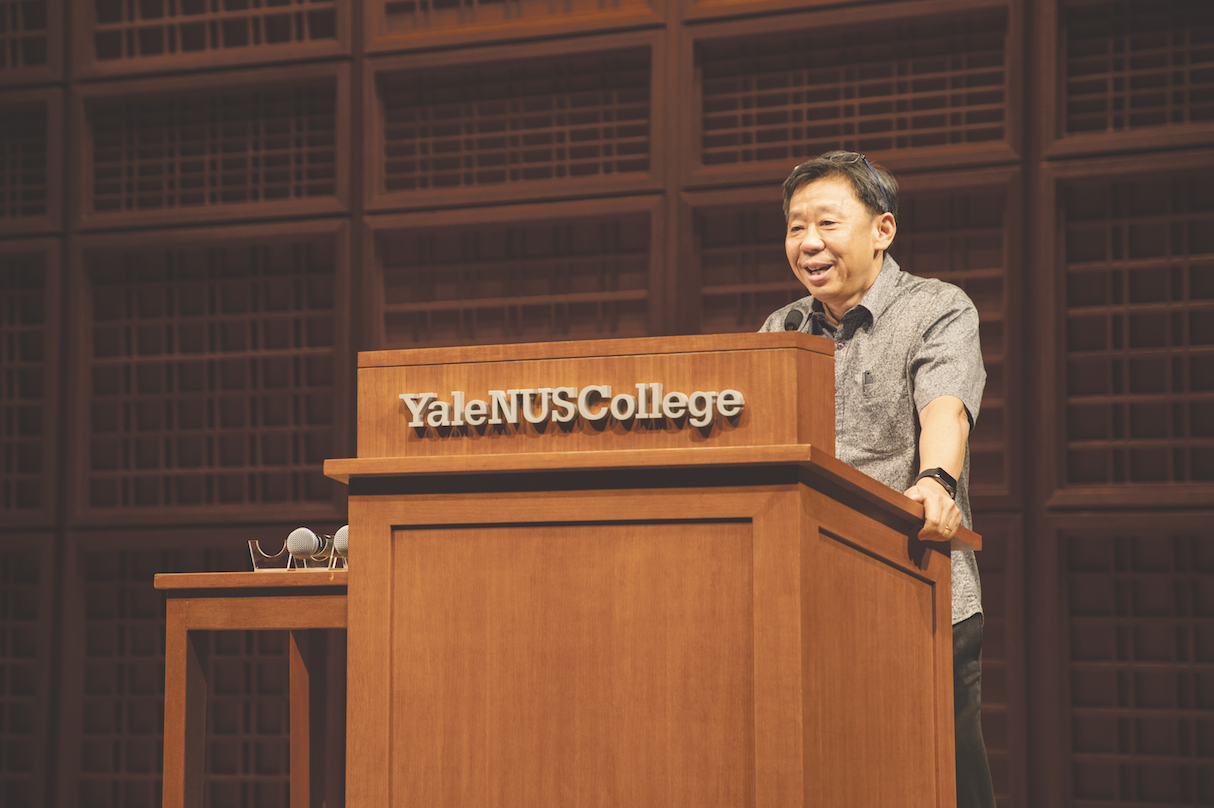
Yale-NUS President Tan Tai Yong visited Benjamin Franklin College on Wednesday for a college tea, one stop on a week-long visit to campus designed to continue strengthening the ties between Yale-NUS and its parent institution.
During the event, Tan and Head of Benjamin College Charles Bailyn, who were colleagues at Yale-NUS during the first years of its existence, discussed the value of a liberal arts education and reflected on the process of exporting such a system to an eastern university.
“There seems to be a flourishing of interest in liberal arts education in Asia, and this signals a very interesting change that has come over the higher education landscape in the East,” Tan said.
Tan, who taught history at Yale-NUS before he became president, attributed the shift in the approach to higher education to the gradual sophistication of Eastern economies, a process that began in the aftermath of the second World War.
Tan explained that the post-World War II renaissance of Asian economies necessitated an educational system based on teaching vocational skills. However, because the global economy has become increasingly complex and interconnected, he said, a liberal arts education is now seen as an essential tool for cultivating creativity and innovation in a society.
“You need to have a kind of humanistic training to accompany other forms of instrumental or functional training that you receive throughout your education.” Tan said. “It is a matter of cultivating the self before moving on to doing other things.”
At the moment, many of the best and brightest students in Singapore and nearby countries choose to attend universities in the west. Tan said he hopes that the emergence of institutions like Yale-NUS will encourage local talent to stay in Singapore and draw more talent from surrounding nations.
Bailyn called attention to what he believes is a troubling trend in American higher education — a growing underappreciation for a liberal arts education.
“In the United States we seem to be going in the other direction,” Bailyn said. “Having gone through some trouble to create a liberal arts higher education system, there is now pressure from many sides to go backwards to something that looks more like an instrumental education.”
However, Tan remained optimistic about the strength of American institutions to maintain their focus on the liberal arts, especially established institutions with rich liberal arts traditions like Yale.
Mina Cezairli ’21, who attended the event, told the News that, as an international student from Turkey, she could relate to the challenge of grasping the value of a liberal arts education when coming from a place in which vocational learning predominates.
Cezairli said she found it interesting to hear about the process of bringing liberal arts education to countries where college systems are usually centered around vocational training.
“It made me think about what a liberal arts education is outside of our experience at Yale — and, when we graduate, what it is going to be worth,” she said.
Dawn Chen ’19, another attendee, said she appreciated hearing Tan’s perspective on higher education.
“It was a very refreshing perspective to actually hear from the other side of the world,” Chen said. “I think at Yale, a lot of the impressions of Yale-NUS come from a certain perspective, and we only see one side of the story.”
Tan said he will spend the rest of the trip meeting with faculty and administrators, among other activities.
Daniel Dager | daniel.dager@yale.edu







